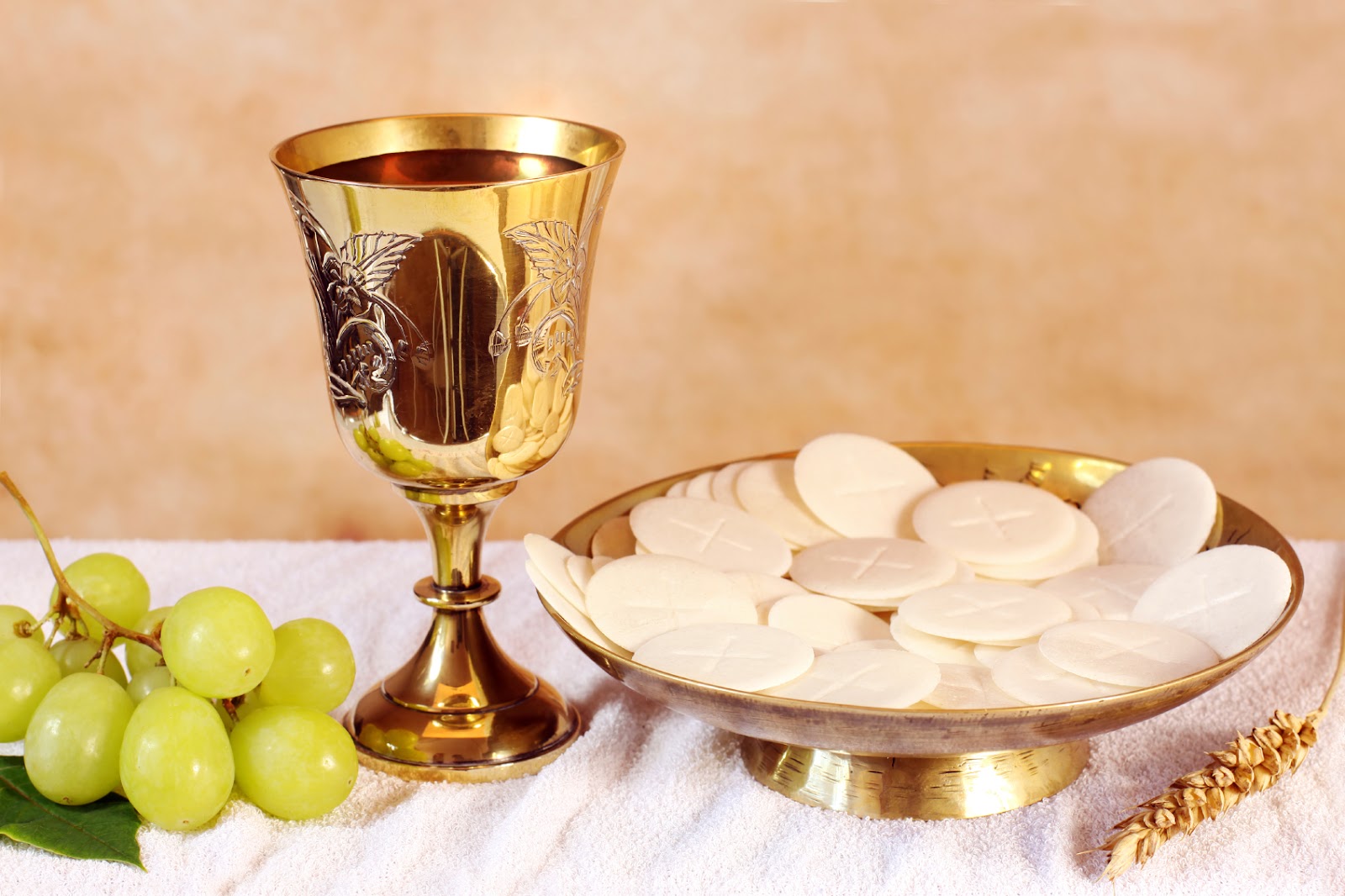The Body and Blood of Christ (CORPUS CHRISTI) June 11, 2023
Deuteronomy 8:2-3, 14-16; 1 Corinthians
10:16-17; John 6:51-58
Why do we need a feast of the Eucharist? A
feast like this affords us the opportunity to give God collective thanks for
Christ’s abiding presence with us which is made visible in the Eucharist. It is
also an opportunity for us to seek a better understanding of the sacrament of
the Body and Blood of Christ and to order our attitude to it accordingly, since
the Eucharist is a sacrament of life which, if misused, could bring about the
opposite effect. As St Paul wrote to the Corinthians, “All who eat and drink in
an unworthy manner, without discerning the Lord’s body eat and drink judgment
against themselves. For this reason many of you are weak and ill, and some have
died” (1 Corinthians 11:29-30).
How to understand the Eucharist in the
Church today? Eucharist in the church can be understood as a communal
sacrificial meal, offered by the community of believers along with the priest,
to the heavenly Father together with Jesus for the remission of sins and as an
offering of gratitude and thanksgiving. The Eucharist is essentially and of its
very nature a community action in which every person present is expected to be
an active participant and the priest presides over it. We are here, on the one
hand, recalling what makes us Christians in the first place - our
identification with the life, suffering, death and resurrection of Jesus. And
that identification with Jesus is expressed not through a one-to-one
relationship with him but in a community relationship with him present in all
those who call themselves Christian.
The Feast of Corpus Christi reminds us that
we as Christians possess an immense treasure. Jesus himself, through the
Eucharist, grants to us the most powerful experience of intimacy possible
within our earthly existence. In his teaching Jesus said, "I am the living
bread that came down from Heaven. Whoever eats of this bread will live forever;
and the bread that I will give for the life of the world is my flesh."
With these words Jesus offered his own life for the sins of the humanity.
In today's first reading Moses reminds the
Israelites of Yahweh's providence during their wilderness experience and tells
them that they wandering in the desert could not have continued their journey
without being sustained by God. He wants them to remember the special food,
manna, God provided for them during their journey. The properties of the manna
were intended to teach the people to trust in God. They had to trust that God
would provide for them each day. If they
tried to set some manna aside for the next day, it spoilt overnight. Saving the
manna was a demonstration of self-reliance rather than trust in God.
And in today's Gospel John picks up the
theme of manna, and contrasts the bread the Israelites ate in the desert with
the new bread of life given by Jesus. John says that, in the person of Jesus,
there is a new Word of God and new bread from heaven. This Word of God has
become flesh; and the new bread of heaven is the very life of Jesus himself. To
eat this bread, says John, is to have a share in the life of God's own self,
and to share eternal life. These verses contain the climax of Jesus’ ‘Bread of
Life’ discourse, which announced a bold promise of eternal life for all who
believe in him and partake of his presence in the Eucharist. In unmistakable
language, Jesus identifies himself with the elements of our Eucharistic sacrifice,
namely, the bread and wine. We feed on Jesus by believing or "taking
in" his Word and acting on it, and by believing in and "taking
in" his divine presence in the bread and wine. Just as we and the
substances we eat and drink become one, so Jesus and those who feed on him form
an intimate union. Jesus tells the people and the disciples that unless they
eat the flesh of the Son of Man and drink his blood, they will have no life in
them. Eucharist is a gift, not just to be adored and revered, but also to be
consumed, digested and lived by every Christian.
Let us live the Eucharist. Let us Take
ourselves before God, Be Blessed by God, Break ourselves in Sharing what we have with others. The
Eucharist thus becomes alive in us.
Happy Feast


No comments:
Post a Comment